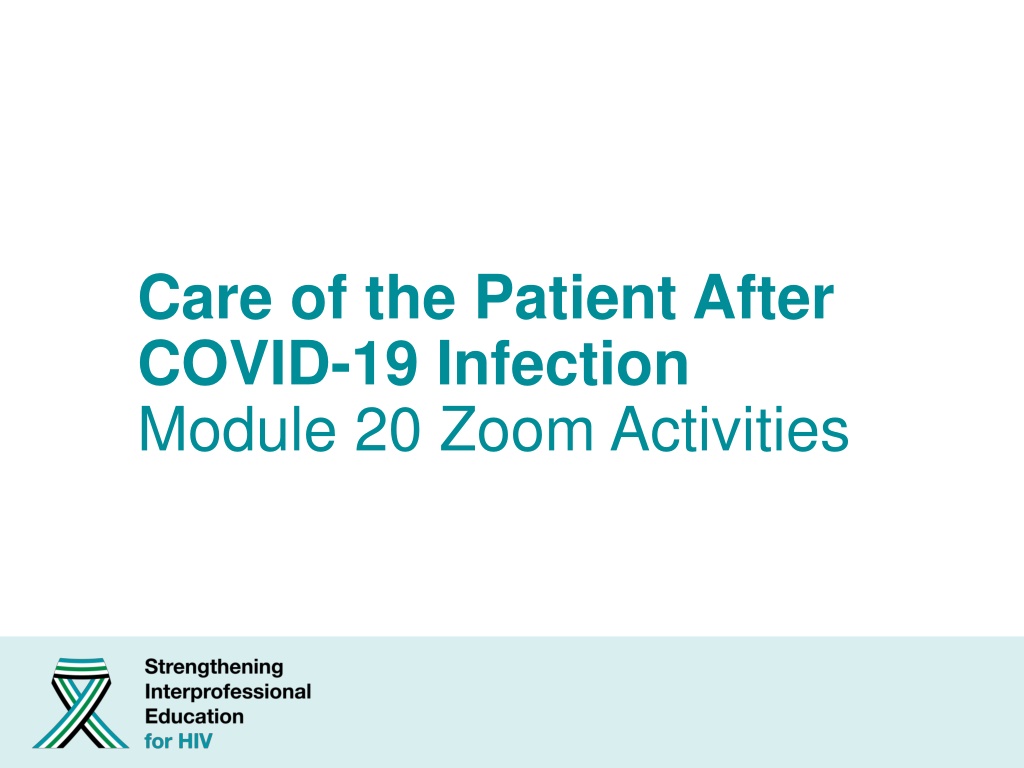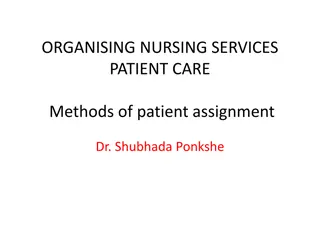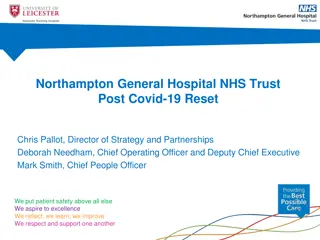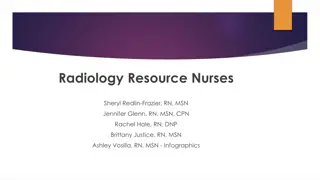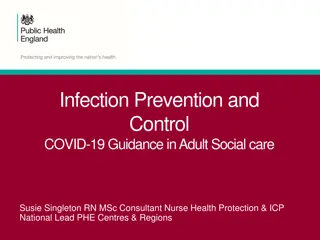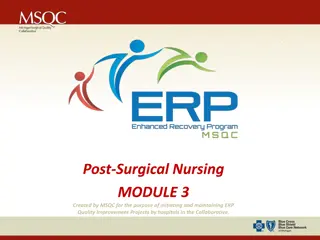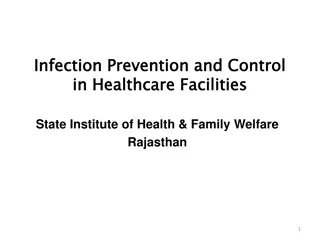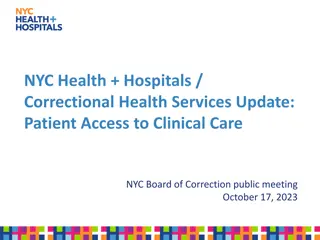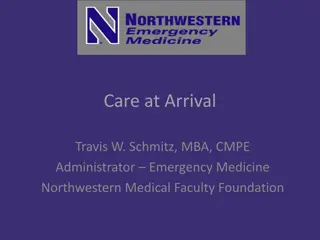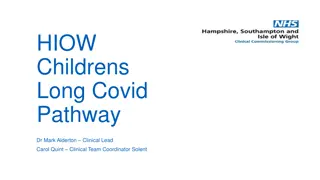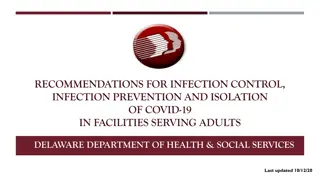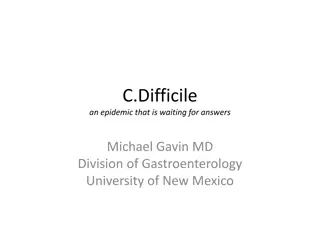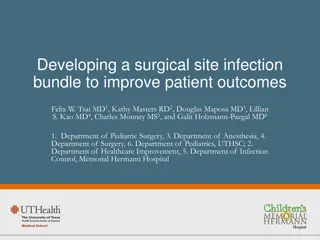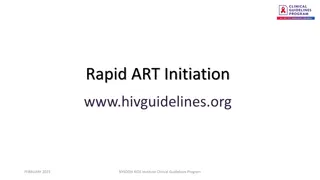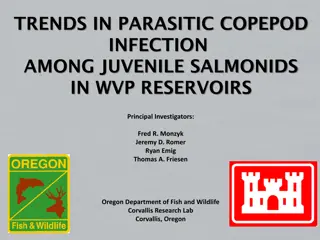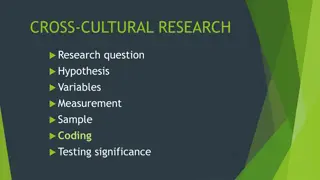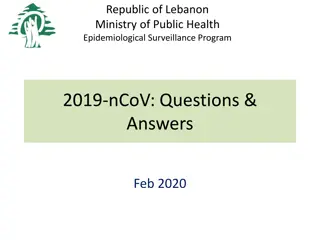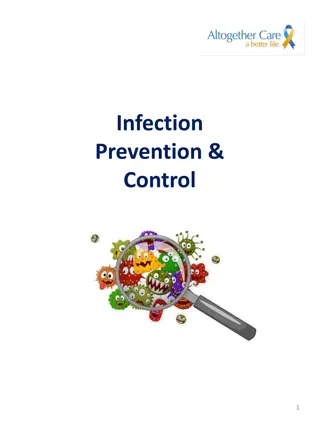Patient Care Strategies Post COVID-19 Infection
Explore a module focusing on caring for patients post-COVID-19 infection, emphasizing a multidisciplinary approach, patient-centered care, and practical activities such as role-playing. Discover key considerations for managing ongoing symptoms, like fatigue, in patients like Daniel and his niece Grace, along with strategies for effective evaluation and treatment. Engage in breakout discussions and debrief sessions to enhance your understanding and application of patient care principles in the context of post-COVID-19 conditions.
Download Presentation

Please find below an Image/Link to download the presentation.
The content on the website is provided AS IS for your information and personal use only. It may not be sold, licensed, or shared on other websites without obtaining consent from the author.If you encounter any issues during the download, it is possible that the publisher has removed the file from their server.
You are allowed to download the files provided on this website for personal or commercial use, subject to the condition that they are used lawfully. All files are the property of their respective owners.
The content on the website is provided AS IS for your information and personal use only. It may not be sold, licensed, or shared on other websites without obtaining consent from the author.
E N D
Presentation Transcript
Care of the Patient After COVID-19 Infection Module 20 Zoom Activities
#1: Multidisciplinary care for PCC (IPE) Objective: Describe a multidisciplinary approach to the care of a patient who presents with ongoing symptoms after recent COVID-19 infection
Case Daniel is a 46-year-old man with ongoing fatigue three months after having COVID- 19. His other symptoms, such as fever, cough, and body aches had improved, but the fatigue persisted.
Multidisciplinary Care Questions a) Imagine Daniel presents to your clinic with post COVID-19 condition. What roles would your professional cadre play in his care? b) What important roles would other professional cadres play in his care? You can find these questions in your Zoom handout
Breakout rooms 10 minutes
Debrief on key points
#2: Role play Patient- centered care for PCC Objective: Apply a patient-centered approach to the evaluation and treatment of patients who present after COVID-19 infection
Case continues Daniel's 17-year-old niece, Grace, had COVID-19 4 months ago and recently has had trouble sleeping and has been unable to concentrate on her school work. She heard from Daniel that you believe his fatigue is a symptom of Post COVID-19 Condition and wonders if she could a have it too.
Role Play Instructions In pairs, one person will play the provider and one person will place Grace. Take turns practicing OARS to evaluate Grace using a patient-centered approach. After spending 5 minutes each practicing, take 5 minutes to discuss what worked well and what you would improve. Refer to the Zoom handout for instructions when in your breakout room.
Breakout rooms 15 minutes
Debrief on key points What went well? What was challenging? Patients, how did you feel the interaction went? Providers, how would you change your approach next time?
#3: Discussion Psychosocial impacts of Post-COVID Condition Objective: Apply the principles of motivational interviewing to engage vaccine-hesitant patients in conversations about vaccination
Psychosocial impacts of Post-COVID Condition (PCC) The effects of COVID-19 and PCC on an individual, their family, and their communities are wide-ranging
Small group discussion Discuss the potential psychosocial impacts of PCC at the individual, family and community level
Breakout rooms 10 minutes
Psychosocial impacts may include any of the following: Stigma associated with COVID-19, and someone with persistent symptoms may be shunned or isolated from the community, even if they are no longer contagious. Persistent symptoms impairing a person s ability to work or go to school, which can in turn lead to wage losses at the individual and family level. If work absences accumulate in large numbers, there can be consequences to the greater economy and to the availability of critical services.
